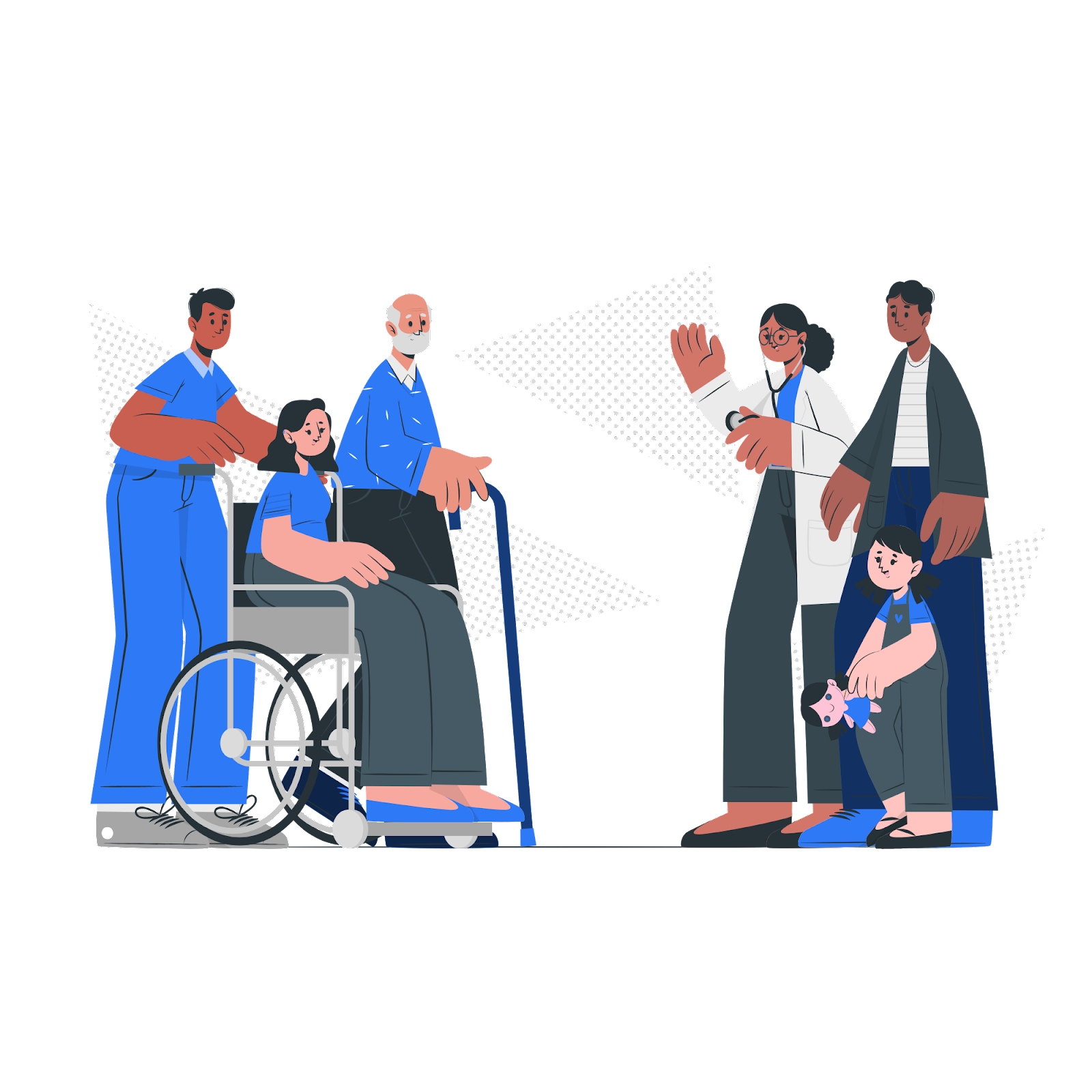In 2022, the U.S. was home to 1,044,734 licensed physicians, according to state medical boards, which issued 129,427 licenses that year, including 31,504 to first-timers. Remarkably, 24% of these doctors hold licenses in more than one state, showcasing their broad qualifications and ability to move freely within the medical sector. Most of these professionals—89%, to be exact—earned their degrees from allopathic (MD) medical schools. However, doctors from osteopathic (DO) schools have surged, nearly doubling since 2010.
By 2023, the numbers kept growing, with California leading with 117,674 active doctors, a stark contrast to Wyoming’s modest 1,256. The osteopathic field has particularly blossomed, with a 30% increase in the last five years, bringing the total to almost 149,000. This trend continues, and the growth highlights an expanding diversity in medical education and practice nationwide.
As more people seek medical services, continuous changes in regulations and a growing inclination towards telehealth make the licensing process appear overwhelming.
This article dives into how professional medical licensing services can simplify obtaining a license, reduce stress, save time, and ensure compliance with all requirements. For both experienced doctors and new graduates, these services provide crucial assistance on your licensing journey, making the path less intimidating and more manageable.
Understanding the Medical Licensing Process
Earning a medical degree, whether it’s an MD or a DO, is a monumental achievement, yet it’s only the first step toward practicing medicine in the United States. The real gateway to practicing medicine legally across the states is securing a medical license from the respective state’s medical board. Practicing without one is not only illegal but also subject to serious penalties, including fines and imprisonment.
The journey to licensure begins with rigorous exams like the United States Medical Licensing Examination® (USMLE) or the Comprehensive Osteopathic Medical Licensing Examination® (COMLEX-USA). While these tests are part of the educational trajectory, they are critical beyond academic assessment—they determine a candidate’s eligibility for a medical license as mandated by state medical boards.
Postgraduate training often introduces new doctors to the licensing process. In this phase, physicians typically engage with the medical board for the first time, applying for licenses that are specific to accredited residency programs. This interaction comes in two forms:
- Postgraduate/Training License: Issued to residents, this license is operational only within the confines of the training program and under the supervision of fully licensed faculty. It automatically expires if the resident leaves the program.
- Full, Unrestricted License: Granted upon meeting all licensure requirements, this license allows for unrestricted medical practice. Physicians usually secure this license during their residency after completing the requisite years of training.
Achieving licensure is a comprehensive process that involves more than passing exams. It encompasses education, hands-on training, meticulous application submission, and stringent background checks to ensure patient safety and professional integrity. Here’s how:
- Educational Foundation: Aspiring professionals must complete specified educational paths—medical doctors from medical schools, nurses from nursing programs, and pharmacists and dentists from respective specialized schools.
- Licensing Examinations: These exams, such as the USMLE for doctors or the NCLEX for nurses, test the candidates’ knowledge and readiness for medical responsibilities.
- Practical Experience: Critical for transforming theoretical knowledge into practical skills, clinical rotations or internships under the supervision of experienced professionals are essential.
- Application Process: This step requires assembling and submitting various documents, like transcripts and recommendations, and often includes an application fee.
- Background Checks: Conducted to ensure the ethical standing and integrity of the aspiring practitioner, these are integral to maintaining patient safety and trust.
Navigating through these phases demands unwavering dedication and strict compliance with regulatory standards. Successfully managing these steps equips medical professionals not only with the credentials but also with the ethical and practical readiness to provide top-notch healthcare.

The Challenges of Medical Licensing
Earning the right to practice medicine in the U.S. is a privilege unique to each state, and understanding the diverse regulations set by state medical boards is crucial. These boards, governed by laws typically known as medical practice acts, dictate the conditions under which physicians operate.
While there is a movement toward harmonizing licensing requirements across states, the dissolution of automatic exchanges between state medical boards complicates the process. Physicians must apply individually in each state where they wish to practice, including for telemedicine, though this area is evolving with new legislation. For instance, the AMA notes shift toward more uniform requirements, yet the path to a universally recognized national medical license, despite its potential benefits, remains elusive.
The variability in state board operations can significantly affect the licensing timeline, ranging from a few weeks to several months. Specific states like Arizona and Florida mandate criminal background checks through the Interstate Medical Licensure Compact, which others like New York do not require. Differences extend to the acceptance of credentials verified by the Federation Credentials Verification Service (FCVS), and the handling of incomplete or incorrect applications—some states offer a chance to correct them while others may reject them outright.
Here are examples of the licensing experiences across various states:
- Colorado and Rhode Island offer more streamlined processes, often completing licenses within a few months.
- Ohio offers an expedited process for experienced practitioners, highlighting a more efficient system for those recognized for longstanding practice.
- Nevada, Texas, and California are notorious for their demanding and prolonged licensing processes, especially for international medical graduates. These states are marked by stringent documentation requirements and slower communication, which can extend the duration and complexity of obtaining a medical license.
Beyond obtaining a license, physicians must navigate continuous changes in licensing requirements, from varying application fees—such as Delaware’s $425 compared to Rhode Island’s $1090—to the intricacies of credential verification and prescription authority. For instance, nurse practitioners in California can independently prescribe Schedule II controlled substances, unlike their counterparts in Georgia.
The ongoing requirements for continuing medical education (CME) also present a layer of complexity. States differ significantly in their CME requirements, both in hours and content, necessitating vigilant compliance to maintain licensure.
Legal and regulatory hurdles continue to challenge healthcare professionals. Facing licensure denials due to past disciplinary actions or criminal convictions can complicate one’s professional journey, potentially requiring legal intervention to navigate these issues. Moreover, with the rise of telemedicine, physicians licensed in multiple states may encounter conflicting regulations, necessitating adherence to the most restrictive rules to ensure compliance.
Navigating the medical licensing landscape in the U.S. demands a meticulous understanding of varied state laws, a proactive approach to continuous education, and a readiness to tackle legal and regulatory challenges, all of which underscore the complexities of maintaining medical licensure in a diverse and evolving healthcare environment.
The Role of Professional Medical Licensing Services
Completing medical school and clinical rotations marks only the beginning of your journey into medicine. The next critical step—obtaining your medical license—often proves daunting and complex. Fortunately, professional medical licensing services exist to guide you through this intricate process, offering a more streamlined path that can significantly shorten the timeframe for obtaining your license.
The process for medical licensure varies from state to state, making it challenging to pinpoint an average timeframe for obtaining a license. It can take anywhere from six weeks to six months, and sometimes longer if complications arise. For instance, an incomplete application or inaccuracies can delay approval, with some states requiring you to start the process anew, complete with additional fees.
Navigating the myriad tasks involved in obtaining a license—such as researching state-specific regulations, fulfilling numerous verification requests, and compiling detailed applications laden with complex medical terminology—can be overwhelming. Moreover, the need to continually follow up with various entities, including state boards, and potentially resubmit materials, adds to the complexity.
Professional medical licensing services mitigate these challenges by handling the heavy lifting. They streamline the process by:
- Managing detailed research on state board requirements and processes.
- Handling verifications and applications to ensure all information is accurate and complete.
- Following up with licensing boards to expedite the process and address any issues promptly.
- Preventing common pitfalls, such as missing crucial deadlines, omitting necessary information, or failing to provide sufficient details, which can delay or derail the licensing process.
These services not only save you considerable time but also protect you from the stress and potential errors that often accompany the licensing process. Their expertise in navigating this regulated field comes from years of experience submitting thousands of applications, and their established relationships with state boards often facilitate smoother and faster licensing.
By partnering with a professional medical licensing service, you can focus more on your transition into practicing medicine and less on the bureaucratic hurdles. Their support ensures that your application is thorough, compliant, and submitted within optimal time frames, significantly boosting your chances of quick approval. This level of assistance is invaluable, particularly for those fresh from medical school, eager to start their careers without the burden of navigating a complex and sometimes unforgiving bureaucratic landscape.

When Medical Licensing Services Become Invaluable
Navigating the medical licensing maze is a formidable challenge for healthcare professionals at all career stages. The journey demands meticulous attention to detail and adherence to strict regulations, involving complex paperwork and precise timing. Whether professionals are moving between states, adapting to new regulations, or simply handling routine license renewals, medical licensing services provide customized support that significantly enhances practice efficiency and compliance.
Managing Licensing Across State Lines and Specialties
The challenges of practicing across state lines are daunting, primarily due to the disparate and often rigorous requirements set by various state medical boards. A major obstacle is the inconsistency in licensing standards across states, which can complicate the professional lives of even the most seasoned practitioners. Additionally, expanding one’s practice into new specialties introduces another layer of complexity, as each specialty often demands its own set of certifications or fellowships.
These specialty certifications typically require not only passing rigorous examinations but also accumulating specific types of clinical experience. Furthermore, many specialties mandate ongoing recertification, which may involve continuous education and periodic re-examinations.
The administrative burden of juggling multiple state licenses and specialty certifications is substantial and multifaceted:
- Extensive Documentation: Healthcare professionals need to compile and update a wide array of documents, from educational credentials and training records to comprehensive logs of continuing education credits.
- Renewal Deadlines: Managing the varying renewal deadlines and specific requirements for each state license and specialty certification is both daunting and labor-intensive.
The stress associated with navigating these complexities cannot be overstated. The anxiety of potentially missing a deadline or failing to meet a crucial requirement can significantly impact a healthcare professional’s focus and detract from patient care.
Medical licensing services become invaluable in these scenarios by providing structured support that alleviates the administrative load, ensures deadlines are met, and helps maintain compliance with all necessary regulations.
Managing Regulatory Changes
Staying current with regulatory changes in one state can be manageable, but tracking alterations across multiple states elevates the complexity and demands significant time and dedication. Each healthcare professional has unique needs shaped by their specialty, location, and career objectives. Medical licensing services address these needs with tailored compliance strategies, ensuring practitioners not only meet the existing standards but are also primed for any upcoming modifications.
Medical licensing services adopt a proactive stance on regulatory updates. They continuously scan for changes in healthcare laws across different states and specialties, a process bolstered by legal expertise and robust industry connections. These connections often provide early insights into legislative changes, keeping clients well-prepared and never blindsided.
To streamline the management of these changes, many services utilize sophisticated software updated in real-time with the latest regulatory data. These systems can automatically identify updates that might impact a client’s licensing status, ensuring applications adhere to the most recent standards. This integration of technology minimizes the risk of compliance issues that could delay or obstruct licensing processes.
Furthermore, these services extend beyond mere compliance management by offering educational resources and training. This support helps healthcare professionals grasp the significance of regulatory changes and cultivates an environment of ongoing learning and adaptability within their practices.
Streamlining Renewals and Re-licensing
Maintaining current medical licenses and ensuring accurate provider information are crucial for delivering consistent quality care. Like any professional credential, medical licenses expire, necessitating timely renewals and re-licensing. These processes are often intricate, involving numerous steps and rigorous documentation.
Medical licensing services simplify these tasks by overseeing all aspects of renewals and re-licensing, ensuring they are completed accurately and on time. They deploy automated systems that monitor renewal deadlines and continuing education requirements, providing timely alerts to professionals and, in some cases, automating parts of the application process such as form completion using previously submitted data.
Professional medical licensing services rigorously review each licensing application before submission to ensure everything is correct and complete. This thoroughness drastically reduces the likelihood of errors that could cause delays.
Should any issues emerge during the renewal or re-licensing stages, these services act as powerful advocates for healthcare professionals. With their deep understanding of regulatory requirements and strong negotiation skills, they can effectively resolve disputes with licensing boards and secure solutions that meet both regulatory demands and the needs of their clients.

Choosing the Right Medical Licensing Service
Beyond merely facilitating your licensure, the best services offer complete solutions that guide you from the initial application to full license acquisition. They are adept with the Interstate Medical Licensure Compact (IMLC), which simplifies the process across multiple states, making them invaluable partners.
When choosing a medical licensing service, several critical factors should guide your decision to ensure the service not only navigates you through the complex process but also partners with you for the long haul.
- Tailored to Your Needs
Dedicate time to thoroughly researching potential services. Understand the specific offerings of each, whether that involves bulk licensing, IMLC familiarity, nurse licensing, or specialized medical practice licenses. It’s crucial to choose a provider with demonstrated expertise in your specific area of need.
- Understanding of State Requirements
Assess each service’s grasp of state-specific licensing requirements to ensure your license will be valid wherever you practice. A service’s successful track record and existing relationships with medical boards can significantly influence their ability to efficiently manage your licensing requirements.
- Credentials and Experience
The credibility and expertise of a medical licensing service are often reflected in their accreditations, certifications, and breadth of experience. Verify these qualifications through their official communications and independent reviews to understand their capacity to handle your licensure.
- Client Feedback and Support
Explore client testimonials and service reviews to gain insight into the effectiveness and reliability of the service. Positive feedback from previous clients can be a strong indicator of what to expect.
- Customer Support Excellence
Effective communication and responsive customer support are crucial in navigating the licensing process. Ensure the service offers comprehensive support via multiple channels and maintains regular updates on your application’s progress. Exceptional customer support can transform a complex process into a manageable and stress-free experience.
Selecting the right medical licensing service is crucial for ensuring a smooth and effective licensure process for physicians. It’s important to ask detailed questions to determine the suitability and reliability of a service:
- What range of services do you provide?
- Does the service handle application completion, exam preparation, and full process navigation?
- How long have you been in business, and what is your success rate with medical licenses?
- Can you describe how you assist physicians through the licensing process?
- Are there experts on your team familiar with the licensing procedures of various states?
- Have you helped physicians obtain licenses in my state, and what were the outcomes?
- How do you ensure compliance with the deadlines and prerequisites of different states?
- What happens if I do not successfully obtain a license? Do you offer refunds?
- Could you provide testimonials or references from other physicians who have used your services?
- What are your fees? Do you offer a detailed breakdown of costs?
Choosing a trusted medical licensing service is critical in the competitive healthcare field. Opting for an experienced provider can make the difference between a streamlined process and a protracted, costly ordeal. At MedicalLicensing.com, we’re committed to offering exceptional services that meet your needs with precision and professionalism. Take the first step today and discover the benefits of partnering with a leader in medical licensing services.
Conclusion
Navigating the complex landscape of medical licensing can be a daunting task, particularly given the diverse requirements and regulations across different states. Professional medical licensing services not only simplify this intricate process but also provide invaluable support that ensures healthcare professionals meet all necessary standards with efficiency and ease. By leveraging the expertise of these services, physicians and other healthcare providers can focus more on their practice and less on the bureaucratic hurdles, ultimately accelerating their journey to providing care.
Whether you are a recent graduate stepping into the world of healthcare or an experienced practitioner looking to expand your practice across state lines, choosing a trusted medical licensing service is a strategic step toward achieving professional success and maintaining compliance in an ever-evolving medical environment.



